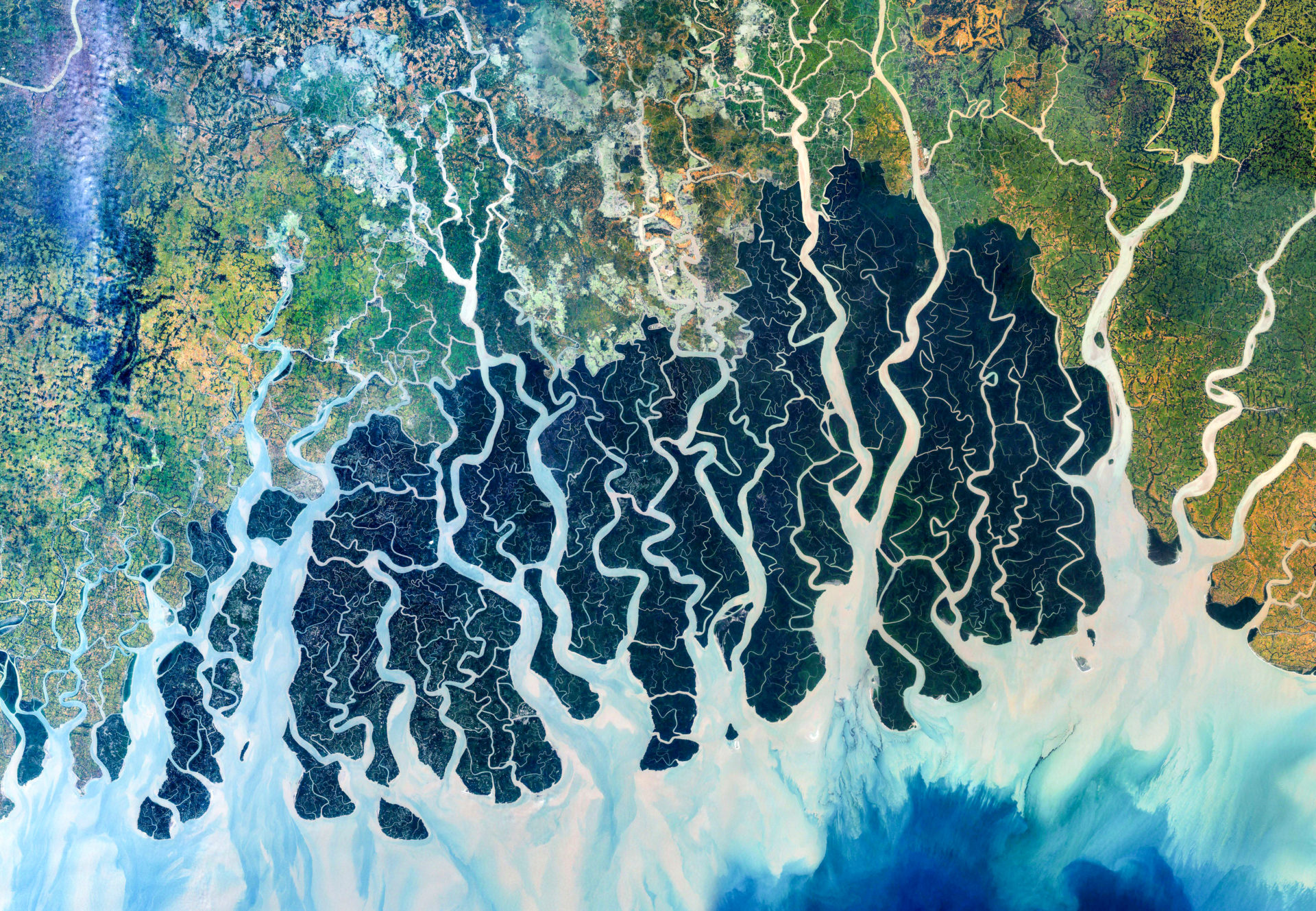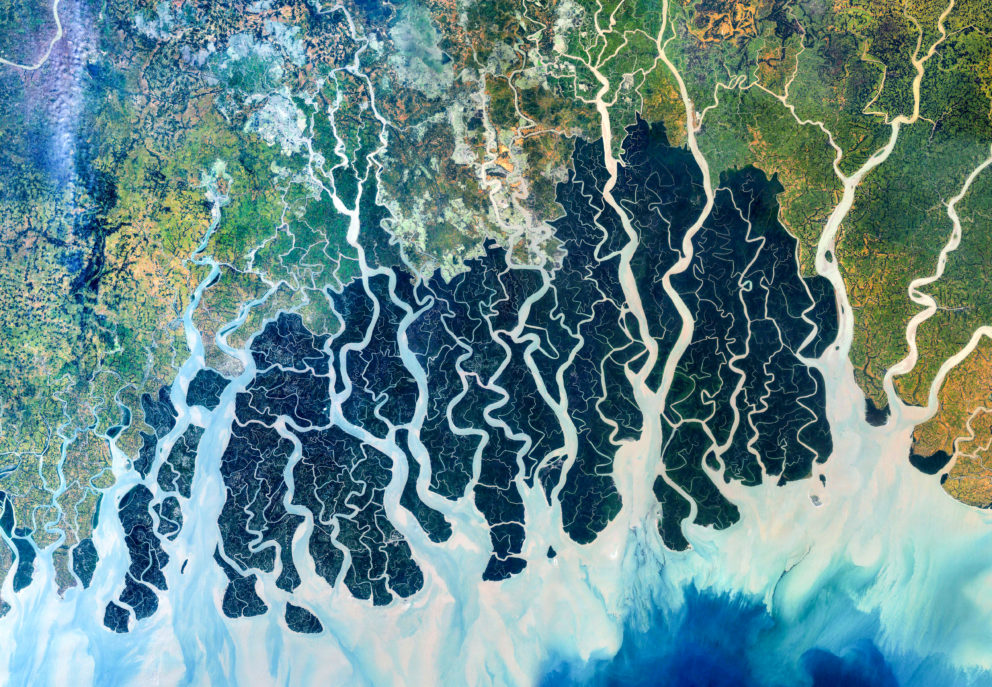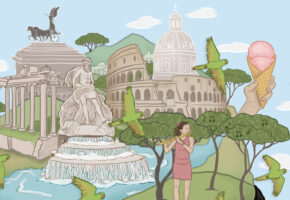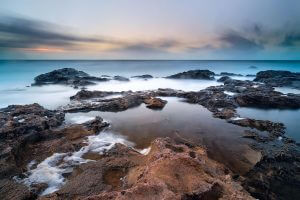

Spring 2021
Shifting Currents
A Note from the Editors
Whether gentle or fierce, the forces around us rarely remain stagnant. Those changes carry the power to carve out our futures.
In the spring 2021 issue of Hidden Compass, we turn our sights to shifting currents — in all their forms — and the stories they inspire.
Coursing headfirst into the unfamiliar for our Human and Nature feature, Morgan Tilton investigates the extremes of a changing climate, from the scientific breakthroughs that help us measure its impact to the incalculable effects on our identity. In exploring A River of Unknowns, Tilton ventures not just from the snow-coated mountains of Vancouver Island to the infamous waves of its coast — but into the tumultuous atmosphere above us all.
Colin Daileda also leads us into the clouds, though they are the murky clouds of silt in the waterways of the Bengal delta. In this ecosystem undergoing rapid transformation, researchers seek the Ganges shark, an enigma that has spent over a century Lost in the Shallows. This Time Travel feature tracks the evolution of land and water as well as a dichotomy of exploration styles.
Sometimes shifting currents arise in the very structures of our societies. Former military officer and historical painter Robert Permeti — the subject of Lottie Gross’ Portrait feature — experienced Albania’s swing from a brutal communist regime into a new era. Amidst an upheaval of power, pride, and art, Permeti lost masterpieces, gained freedom, and followed his homeland off the edge of convention and into The Abyss.
The precarious nature of prominence and power also makes an appearance in Moriah Costa’s Quest feature, Blue in Toulouse, in which Costa digs for a largely forgotten Renaissance-era story in southern France. Her research, experiences, and illustrations give color to the boom-and-bust narrative of woad and the boundless influence of its shifting shades.
And for Gemina Garland-Lewis, currents of change appear across the decades and around the world — from the American influence on Japanese whaling after WWII to the modern demand for whale meat in Norway. For this vegetarian who grew up dreaming of becoming a marine biologist, it’s the progression of her own outlook that leaps to the front of this stunning photo feature and Chasing Demons story. Happiness, grief, reverence, and overcoming cultural biases all take center stage as Garland-Lewis considers Whaling and the Paradox of Mercy.
As always, we extend our deepest gratitude to our readers, who share our vision of powerful storytelling, and to our contributors, who bring us stories from the frontiers of exploration.
Until the next voyage,
Katie Knorovsky, Managing Editor
Sabine K. Bergmann and Sivani Babu, Hidden Compass Co-Founders



